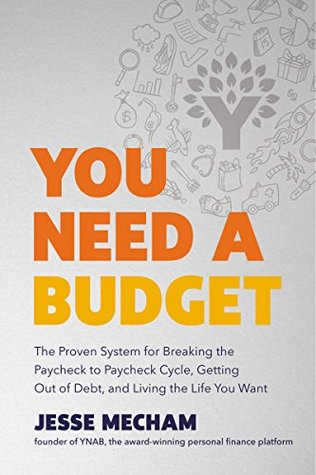More on this book
Community
Kindle Notes & Highlights
by
Jesse Mecham
Read between
February 17, 2019 - January 11, 2020
In truth, when we’re stressed about our finances, it’s because we’re not sure our money decisions are aligned with the life we want to be living. The question we need to ask ourselves isn’t Can I? or Should I? It’s What do I want my money to do for me?
What do I want my money to do for me? is about nothing less than deciding what kind of life you want to live, and then making a plan so your money can help you get there.
the point is to decide what your priorities are, and then make a plan to meet them. Without a plan, you’re floating and stumbling, hoping life will someday click into place.
many of us struggle with money choices because we don’t have a system for making decisions. Your budget is that system. It’s a tool for designing your life around what you want.
Rule One: Give Every Dollar a Job, is all about being proactive, so life doesn’t simply claim your money.
Rule Two: Embrace Your True Expenses, combines the power of thinking ahead with taking action here and now. Whether expenses happen like clockwork (rent), feel impossible to predict (car repairs), or are just far-off dreams (cash for a wedding), they are all part of your true expenses. The key is to prepare a bit at a time by treating them all like monthly expenses.
Rule Three: Roll with the Punches, helps you adapt so you can handle whatever comes your way.
Your budget is a plan—but plans change, and your bu...
This highlight has been truncated due to consecutive passage length restrictions.
Life throw you a curveball? No need for stress. Just pull some money from lower-priority categories and carry on. You haven’t failed at budgetin...
This highlight has been truncated due to consecutive passage length restrictions.
Rule Four: Age Your Money, gets you working toward spending money you earned at least thirty days ago.
it’s not about the money, and it’s not. It’s about your priorities. But you do need to pay close attention to what you’re doing with your money so it supports your priorities.
Rule One: Give Every Dollar a Job • Rule Two: Embrace Your True Expenses • Rule Three: Roll with the Punches • Rule Four: Age Your Money
prioritizing the money you have right now—the whole picture changes.
I’m not saying you shouldn’t think about the future. Your budget is all about thinking ahead. Just make sure you don’t forecast future money.
You would have spent it blindly, not realizing that the money you burned on a cab to your brother’s party really needed to fund your lunch for the next two weeks.
It was a priority for them to have a parent in the family who wasn’t tied to an office. They needed the flexibility so Alexis could take Jack to and from preschool when he started in the fall.
You’re letting other people’s expectations of how you should live your life color your choices. This is where budgeting and soul-searching quickly intersect. Budgeting eventually even becomes soul-searching.
when you start to follow YNAB’s Four Rules. Every dollar you possess is accompanied by a little power jolt. You feel totally in control of your money, and your life.
When you ask, What do I want my money to do for me? you’re deciding how you’ll use your money to get closer to the life you want.
If going out for coffee brings a certain joy to your day that you don’t want to lose, build a coffee category into your budget and don’t feel bad when you buy one! Just make sure the coffee is actually helping to bring you closer to your goals.
Forget future money; use today’s money to write your future.
you have to decide what needs to get done. You’re literally writing a to-do list for your money.
fund your obligations before you do anything else. If you’re setting up your first budget, don’t even think about funding other spending areas—not yet. Just make sure you’ve set aside enough to keep food in your fridge, a roof over your head,
Once a year (I like to do this in January), question every one of your expenses. Question the “givens” like housing, transportation, and insurance.
Where in the first tactic above you’re asking what you could optimize or take away, with a fresh start you’re asking what you should include. When you start with no expenses, each one must pass your scrutiny before even being allowed in.
It’s tempting to use a raise as an opportunity to upgrade your lifestyle, and if that’s truly what you want, go for it. Just be careful about defaulting to new spending just because the money is suddenly there. Make sure your priorities are always driving your decisions.
your true expenses are ALL of your expenses—the daily, the monthly, and the irregular ones that we often forget.
Rule Two will involve your infrequent expenses, and they generally fall into two camps: Predictable, and Unpredictable but Inevitable.


